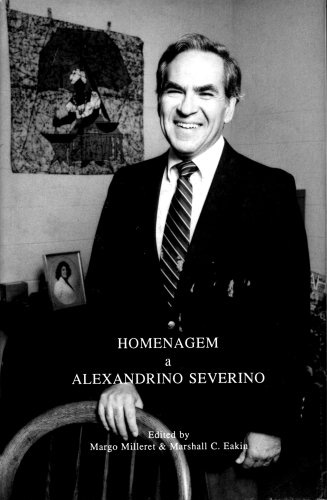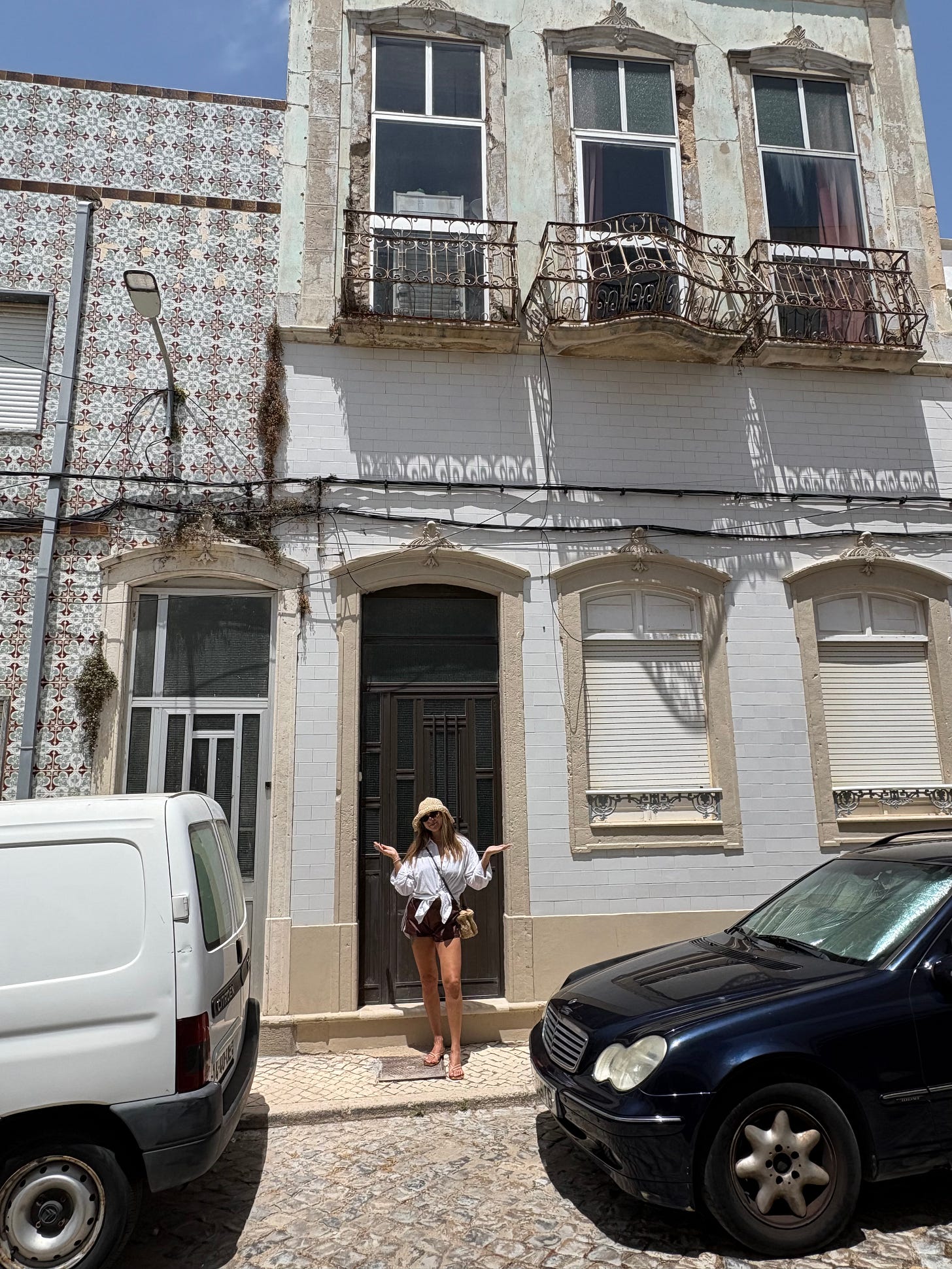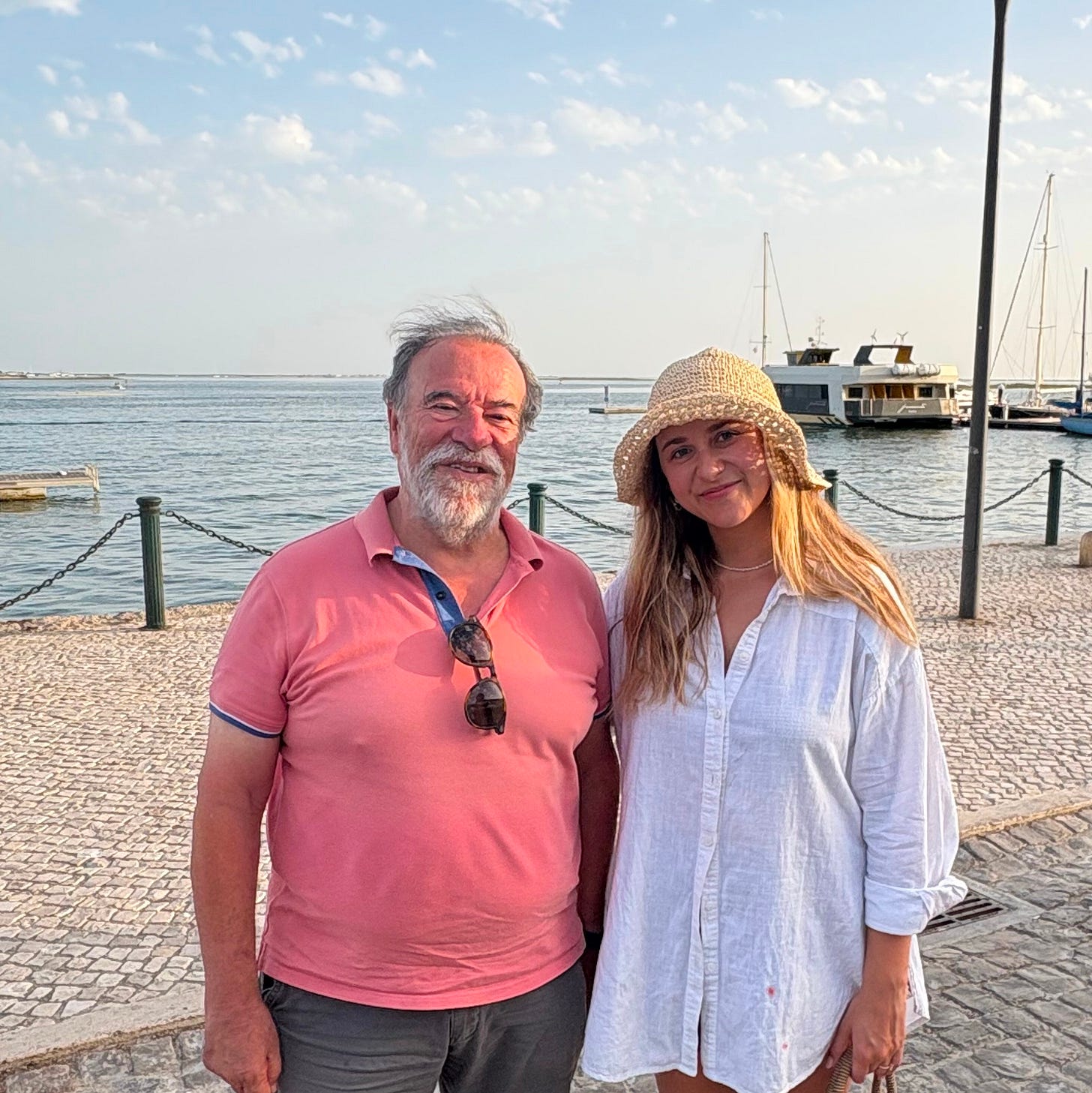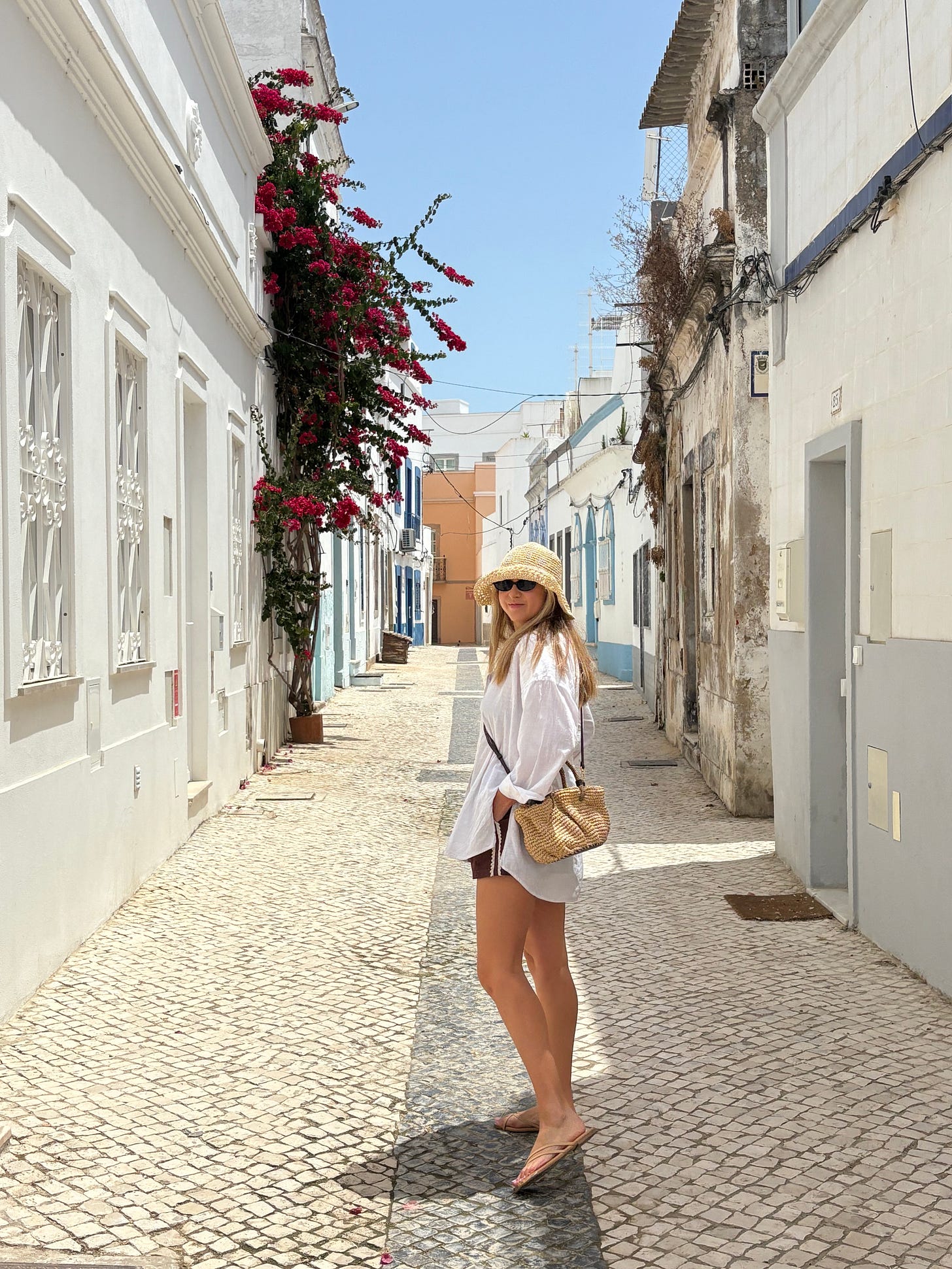Eu Sou Olhanese: The Summer Trip That Led to Generational Healing
From a Fishing Village in Portugal to Vanderbilt University: What My Grandfather's Hometown Taught Me About Belonging
My grandfather, Alexandrino Eusebio Severino, grew up in a small fisherman village in Olhão, Portugal. His father had gone to Massachusetts when he was young to work as a fisherman, something I’ve learned many Portuguese people did at the time to earn money to send home. At the age of 14, he moved to the United States to live with his father after his mother died of a sudden and tragic brain injury.
After going to college in Rhode Island, he taught English and American literature at the Universidade de São Paulo (Marília), where he met my grandmother. She was his student, actually, and nine years younger. Scandalous, I know!
After they got married and had three children, they moved to the United States for him to teach Portuguese Language and Literature at the University of Texas (Austin). Some years later, they moved to Nashville, where my mom was born, and where he taught at Vanderbilt University until he died of a fast-forming brain tumor in 1993.
Because of his sudden and unfortunate early death at 60, I was the only grandchild he was able to meet. And although I’ve heard stories my whole life about him and how much he adored me, I never really felt that until my recent trip to his hometown. It was as if my body remembered his love. As if I was processing grief that had been frozen my whole life.
Would he have taken me to visit Olhão sooner? What stories would I have heard about his childhood? I can’t help but wonder how deeply his presence would have shaped me, the way my grandmother’s did.
It’s a profound experience to return to the home of your ancestors. In my case, I was literally able to go to the house my grandfather was raised in, just a few blocks from the ocean (seen below). As a coastal beach girl at heart, it truly makes so much sense that I come from a fisherman family and a country that’s 59% coastline.
There were subtle but impactful coincidences that let me know my grandparents were with me. Our tour guide in Cascais’ name was Roger, and the generous host at our Olhão hotel’s name was Alexandre—both of my uncle’s names. I kept seeing 143 everywhere, which I’ve always felt was a sign from my grandmother. I even brought some of her jewelry with me to wear on the trip. Then, there was the crazy timing coincidence that led me to meet up with my cousin, my grandfather’s nephew, Felipe (who was the Mayor of the town for 8 years!). I felt in my heart my grandfather was with us and wanted me to connect with people who he loved and knew him well.
I left Olhão with a full heart and a new kind of gratitude. We don’t talk in our culture much about honoring the legacies of our ancestors, or the complexity of grieving someone you don’t remember, but know loved you. This experience filled me with so much appreciation for the life I have, knowing I might not even be alive, or in this country, if it wasn’t for him. His journey from a small fisherman village in Portugal to a professor at Vanderbilt is awe-inspiring and explains so much about the way I grew up.
My family always emphasized the importance of education, hard work, and jobs that are of service to the community. I resisted being guided toward the predictable and safe careers of my family who were teachers and nurses. But back then, that was the only path to a better life, to more opportunity.
I understand on a whole new level that this isn’t uncommon for the immigrant experience. In a time when there’s so much discourse around what it means to live in this country, I can’t help but feel a greater responsibility to share his story, express my gratitude, and urge others to recognize the privilege of being born in this country, and given opportunities and rights innately, versus having to fight and sacrifice so much for them.
Imagine leaving everything and everyone you know to live in a completely new culture, learn a new language, all to give your family a better life.
I am benefiting from my grandfather’s and his father’s sacrifices. And I’ve been thinking a lot about how I can really honor them. Part of me feels guilty for having a better or more comfortable life than those who came before me. But I know deep down, that’s exactly why they did what they did. Their selflessness and love live on through me and my family - in how we approach every day, in what we contribute to the world, in how we treat others.
I hope I make him proud.
From my experience, the Portuguese people are welcoming, creative, forward-thinking, and open-minded. The country is beautiful. Even their gas station bathrooms are impressive!
The way of life is slower, kinder, and lighter. It feels like a country that embraces its history while exploring new innovations, technologies, and ways to grow. To me, its values reflect my own, and I am so proud to have roots there.
I can’t help but wish I had come sooner and embraced my Portuguese heritage more. But it’s never too late. I’m currently researching ways to become a Portuguese citizen and can’t help but feel a bone-deep responsibility to honor my grandfather by prioritizing his culture and heritage. In fact, I just did my astrocartography graph and had ChatGPT break it down, and Lisbon was my top city to live in!
Who knew a summer vacation could turn into generational healing? Knowing where you come from provides such fertile ground to embrace who you are – a journey we’re all constantly on. It’s the best gift to discover how proud I am to be Olhonese.
If you’re curious about exploring Portugal, check out my recommendations here and leave yours in the comments!









Júlia, thank you so much for sharing your thoughts and trip experiences. It makes me proud that you are so connected to our heritage.. your grandfather would be proud.